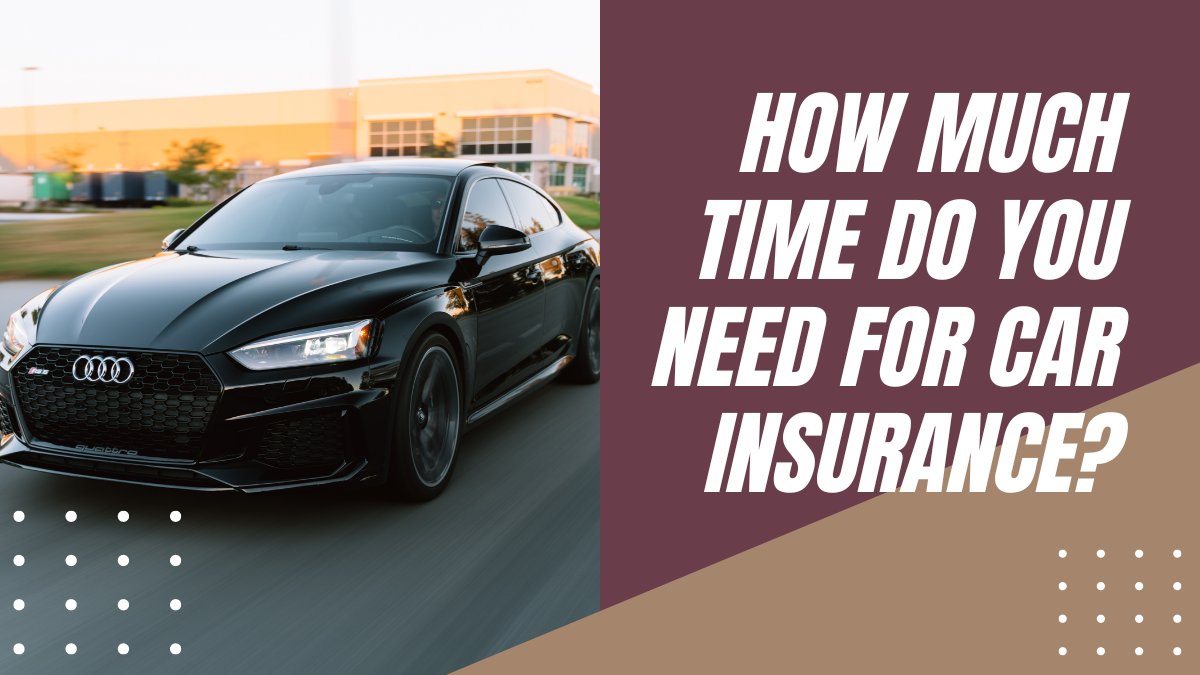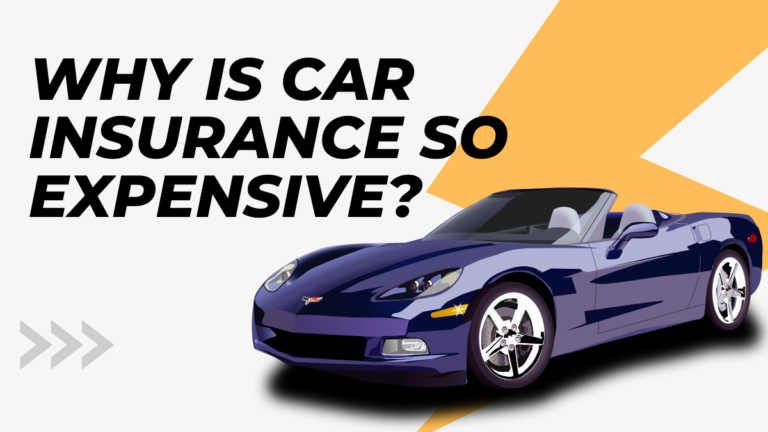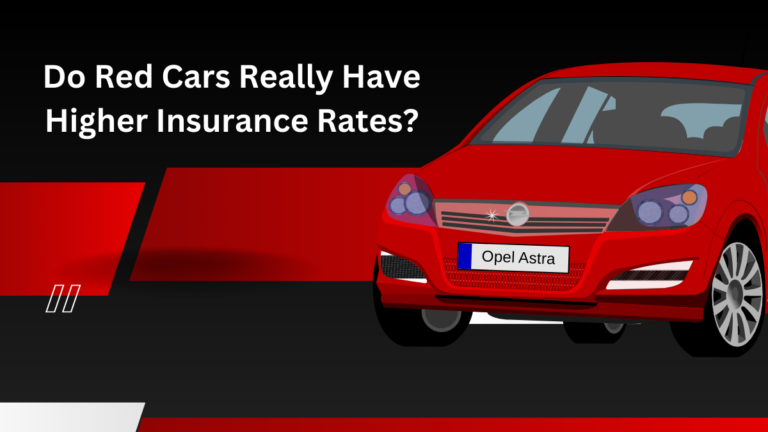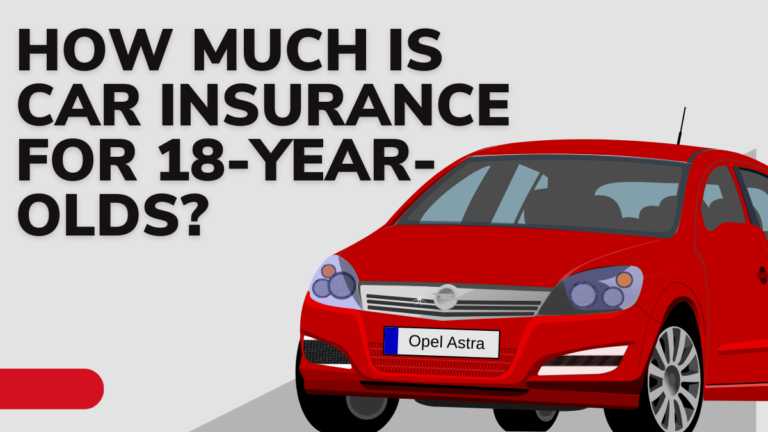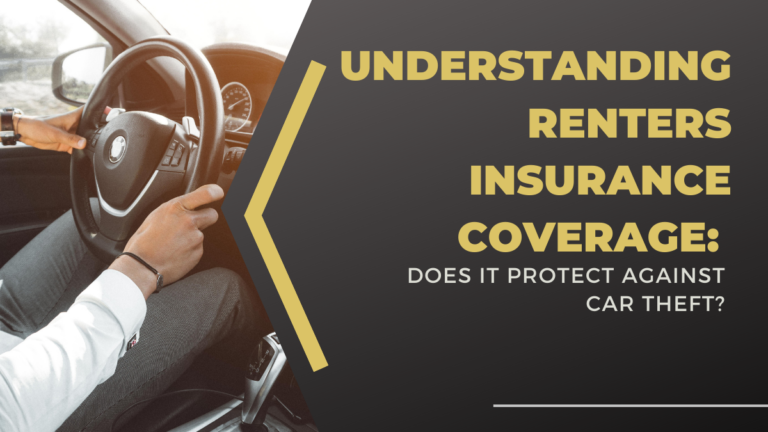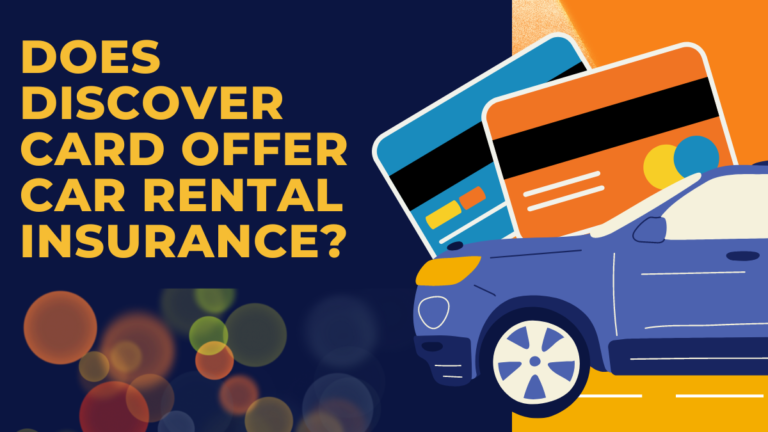From Quote to Coverage: How Much Time do You Need for Car Insurance?

Are you ready to hit the road with your new car? Before you buckle up and rev that engine, there’s one essential step you can’t skip: getting car insurance. But how long does it really take to crack the code of this crucial requirement?
In our latest blog post, we’re diving deep into the world of car insurance timelines. Whether you’re a speedy driver or prefer taking things slow, we’ve got you covered with all the information you need to navigate the insurance maze. So fasten your seatbelt and get ready for a journey through quotes, coverage, and everything in between!
Table of Contents
Introduction: What is Car Insurance?
Car insurance is a type of insurance that helps protect drivers, passengers, and their vehicles from financial loss in the event of an accident. It is required by law in most states, and it can cover damages to your car, medical expenses, legal fees, and other costs related to an accident.

There are many factors that go into how long it will take to get car insurance. The application process can be quick or slow depending on the insurer, and some insurers may require you to wait for a policy period to start before they provide coverage. Your driving history, the type of car you drive, your location, and other factors will also affect your rate and how long it takes to get coverage.
Here are some tips to help you navigate the car insurance process and get coverage as quickly as possible:
- compare rates from different insurers before you apply
- understand the insurer’s underwriting process
- have all required documentation ready when you apply
- be prepared to answer questions about your driving history
Exploring Average Timeframe for Car Insurance Processing
Most insurance companies take an average of 10-14 days to process a car insurance application. However, there are a few things that can speed up or slow down the process.
The most important factor is whether or not you have all the required information and documentation. If you’re missing something, your insurer will have to track it down, which can add a few days to the process.
Another important factor is the type of policy you’re applying for. Some policies (like liability coverage) are typically quicker to process than others (like comprehensive coverage).
Different insurers have different processing times. Some are known for being quick and efficient, while others may take a bit longer.
Factors Affecting Time Frame for Car Insurance Approval
There are a number of factors that can affect the timeframe for car insurance approval. The most important factor is the insurer you choose. Some insurers are known for their quick and easy approval process, while others may take longer to review your application.
Another factor that can affect the timeframe is the type of coverage you’re seeking. Basic liability coverage is typically quicker and easier to obtain than more comprehensive coverage options. If you’re looking for full coverage, you should expect to wait a bit longer for approval.
Similarly, the make and model of your vehicle can also impact the insurance approval process. luxury vehicles or those with high-performance engines may require additional underwriting and take longer to approve.
Your personal driving record will play a role in how quickly your insurance policy is approved. Those with a clean driving history will typically have an easier time getting approved than those with accidents or traffic violations on their record.
Common Reasons Why Your Car Insurance Application Might Take Longer than Expected
There are a number of reasons why your car insurance application might take longer than expected. Here are some of the most common:
- You haven’t provided all of the necessary information. When you apply for car insurance, you’ll be asked to provide a variety of information about yourself, your vehicle, and your driving history. If any of this information is missing or inaccurate, it can delay the processing of your application.
- Your driving history is checkered. Insurance companies use your driving history as one of the main factors in determining your premium. If you have a history of accidents or traffic violations, it could take longer to get approved for coverage.
- You’re applying for high-risk coverage. If you’re considered a high-risk driver due to your age, gender, or driving history, you may have to wait longer to get approved for coverage. High-risk drivers typically pay higher premiums than those with clean records, so insurers are more cautious when approving them for coverage.
- You’re requesting special coverage options. If you’re looking for coverage beyond the basic liability limit, it could take longer to get insured. Some insurers offer unique coverage options like roadside assistance or rental car reimbursement, but these services come at an additional cost and may require additional underwriting scrutiny.
- You’re switching insurers mid-policy term. If you cancel your current policy before it expires and switch to another insurer, you may have to wait a bit longer for coverage. This is because insurers need to review your current policy’s terms and ensure the rate you’re requested is accurate.
Tips and Tricks to Speed Up the Process of Getting Your Car Insurance
Whether you’re shopping for a new policy or switching insurers, the process of getting car insurance can seem like a daunting task. But with a little preparation and know-how, you can speed up the process and get your coverage in no time. Here are a few tips and tricks to help you get your car insurance application moving:
- Get all your ducks in a row. Before you start shopping for car insurance, make sure you have all the necessary information on hand. This includes your driver’s license number, vehicle registration, and proof of liability insurance (if required by your state). Having this information at the ready will help you get an accurate quote and avoid any delays in processing your application.
- Compare apples to apples. When comparing car insurance quotes, be sure to compare similar coverage levels from different insurers. This will help you get an accurate picture of what each company is offering and make it easier to choose the best policy for your needs.
- Know what discounts you qualify for. Many insurers offer discounts for things like having a clean driving record or insuring multiple vehicles with them. Knowing which discounts you qualify for can help you lower your premium and save money on your car insurance.
- Shop around. Getting multiple quotes is one of the best ways to ensure you’re getting the best deal on car insurance. Use an online comparison tool or consult with an independent agent to get multiple quotes from different insurers so you can compare coverage and price.
- Ask questions. If you’re uncertain about something or need clarification on a particular point, don’t hesitate to ask questions. Your car insurance agent or company representative should be able to answer any queries you have in order to make sure you understand the policy and feel comfortable with it.
Follow these tips and tricks to speed up the process of getting your car insurance and make sure you get the best coverage at the most affordable price.
Alternatives to Traditional Vehicle Insurance Policies
There are a few alternatives to traditional vehicle insurance policies that can save you time and money. Here are a few of the most popular options:
- Usage-based insurance: This type of policy charges you based on how much you actually drive, rather than estimating mileage. This can be a great option if you don’t drive very often or have a long commute.
- Pay-as-you-go insurance: With this type of policy, you simply pay for the coverage you need at the time you need it. This can be a great option if you only drive occasionally or have another form of transportation for your daily commute.
- Temporary insurance: If you’re not planning on driving for an extended period of time, temporary insurance can be a great option to save you money. This type of policy is typically used for students who are away at college or people who are taking an extended vacation.
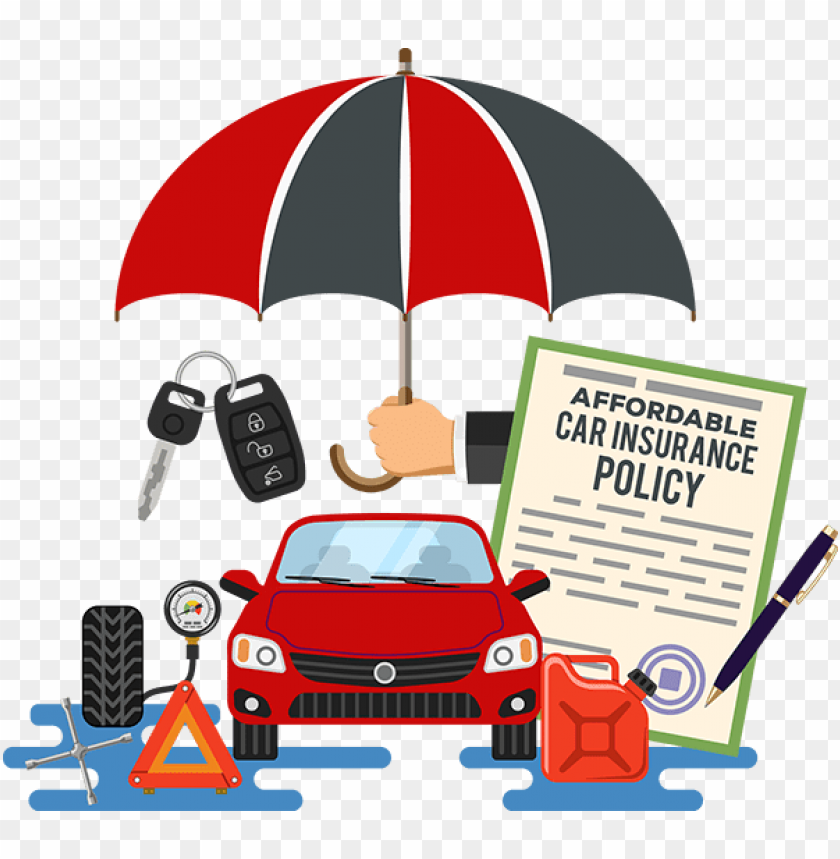
Conclusion
Navigating the maze of car insurance doesn’t have to be a daunting task. With these tips on understanding how long it takes to get car insurance, you can now set your expectations and make an informed decision when selecting which provider is best for you.
